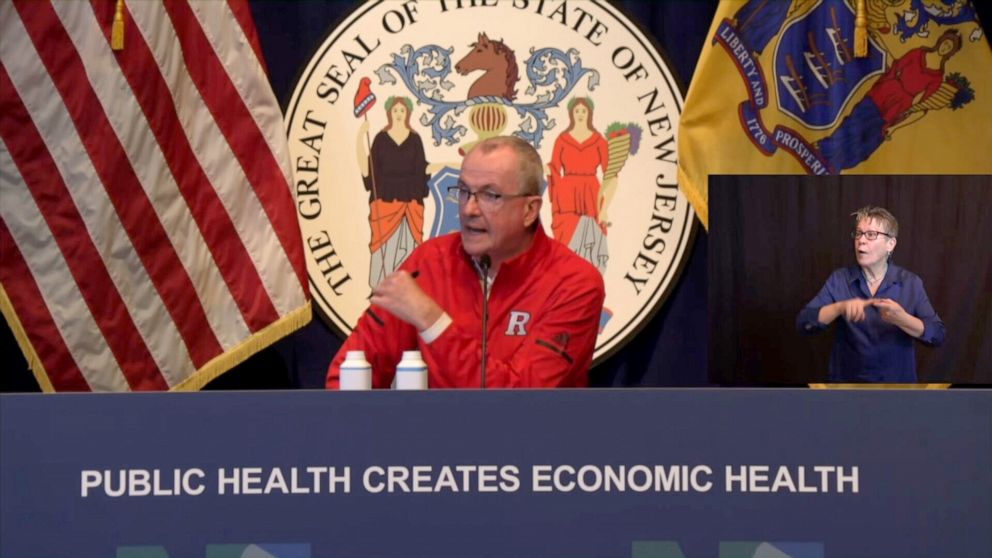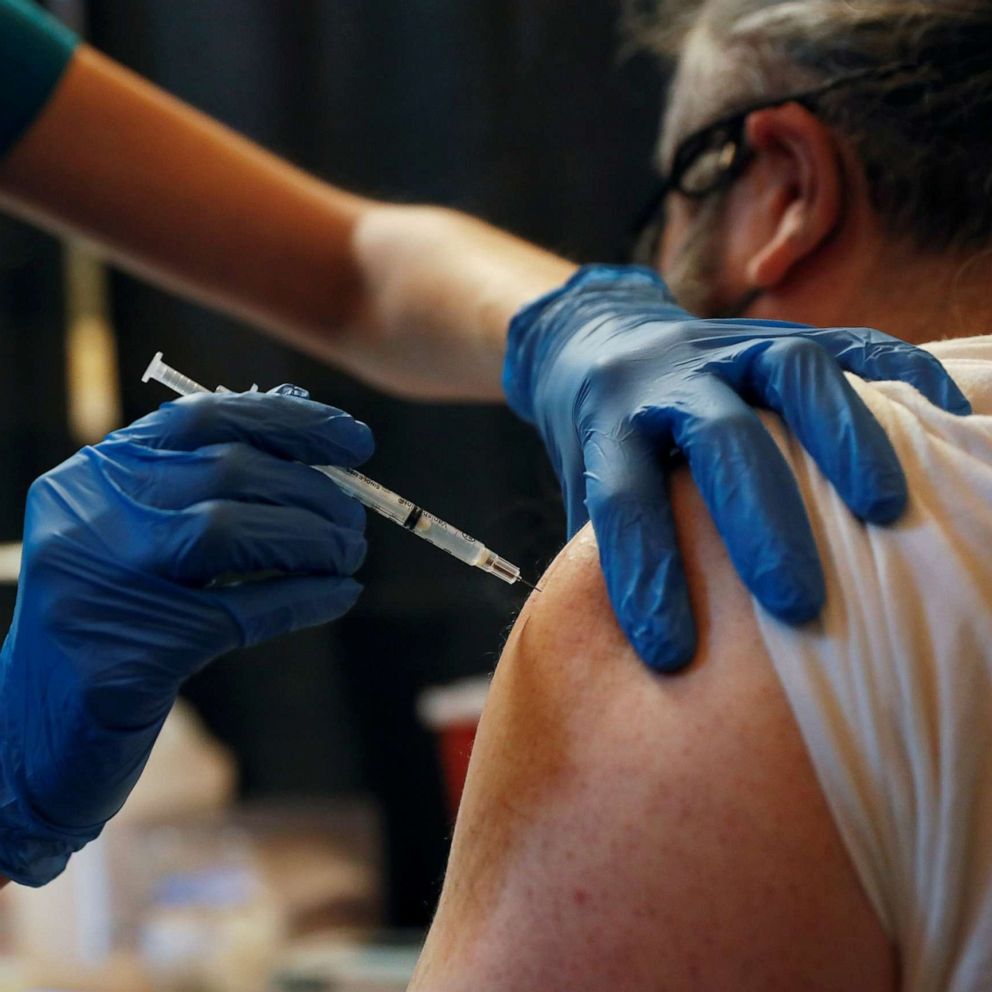COVID-19 variants put brakes on loosening restrictions in New Jersey, Murphy pauses reopening
"My guess is we won't be opening capacity for some time now," Murphy said.
Just days after he loosened COVID-19 restrictions for businesses, New Jersey Gov. Phil Murphy announced on Monday that an indefinite pause is being implemented on further measures to reopen the state because of the coronavirus variants circling the country.
"I wouldn't say it's an alarm. There are a bunch of things coming together at the same time and we're trying to balance all these sorts of megatrends," Murphy said during his COVID-19 briefing. "Getting that balance right is not easy. So, we're therefore using caution."
Murphy conceded that the state is "back to leading the nation in the spread of this virus." He noted that the statewide positivity rate is 8.48% compared to neighboring New York's 3.22%.
"My guess is we won't be opening capacity for some time now because of the caseload," Murphy said on CNN Monday morning.

On March 11, Murphy signed an executive order increasing indoor and outdoor capacity limits from 35% to 50% for certain businesses, including restaurants, food courts, bars, gyms, casinos, barbershops and nail salons. The order also allows indoor gatherings of 25 people (instead of the previous 10) and outdoor gatherings of 50 people (instead of the previous 25).
The new limits, which Murphy described on Monday as "fairly modest," went into effect on Friday. They do not apply to religious services, political events, funerals or memorial services.
"I don't think we have seen links specific to openings," Murphy said at his public briefing. "I don't think we've got any evidence of that."
Murphy said a notable increase in COVID-19 variants in the state in recent days prompted the decision to hold up on taking more steps to relax restrictions.
Judy Persichilli, the commissioner of the state's department of health, said on Monday that the state is grappling with 400 reported cases of COVID variants, including 389 cases of the U.K. variant, three cases of the Brazilian variant, one of the South African variant and seven of the California variant.
"Variants of concern have been shown to be more transmissible and able to cause more severe disease," Perschilli said.
She said that overall, there are 1,192 people hospitalized in the state with COVID-19, including 428 in critical condition and 217 on ventilators.
Murphy said at least 21,666 residents have died of COVID-19 complications since the pandemic began.
Aside from the surge in infections from variants, Murphy said the latest COVID-19 data actually indicates the virus is "plateauing" in the state.
Murphy said that more than 3.5 million people in the state have received at least one dose of the COVID-19 vaccine, and of those 3.5 million, 1.2 million are fully vaccinated.
The governor started the Monday briefing by announcing that some restrictions on in-person visits at long-term care facilities are being lifted, particularly for residents who are fully vaccinated.
"Our long-term care facilities should be working with families to allow for in-person in-door visitation with their loved ones. We know that some residents are suffering from the impact of social isolation," Murphy said.
Under the new guidelines being recommended by the state, indoor visits can be arranged at long-term care facilities in regions where COVID-19 activity is low to moderate.
"In all cases, every resident and visitor must properly wear face masks, especially while indoors," Murphy said.
He said that with Passover and Easter coming up, "The overriding principle that we are working under is that we recognize that families need to be able to be together, especially when so many have been kept apart for so long."
What to know about the coronavirus:
- How it started and how to protect yourself: Coronavirus explained
- What to do if you have symptoms: Coronavirus symptoms
- Tracking the spread in the U.S. and worldwide: Coronavirus map







